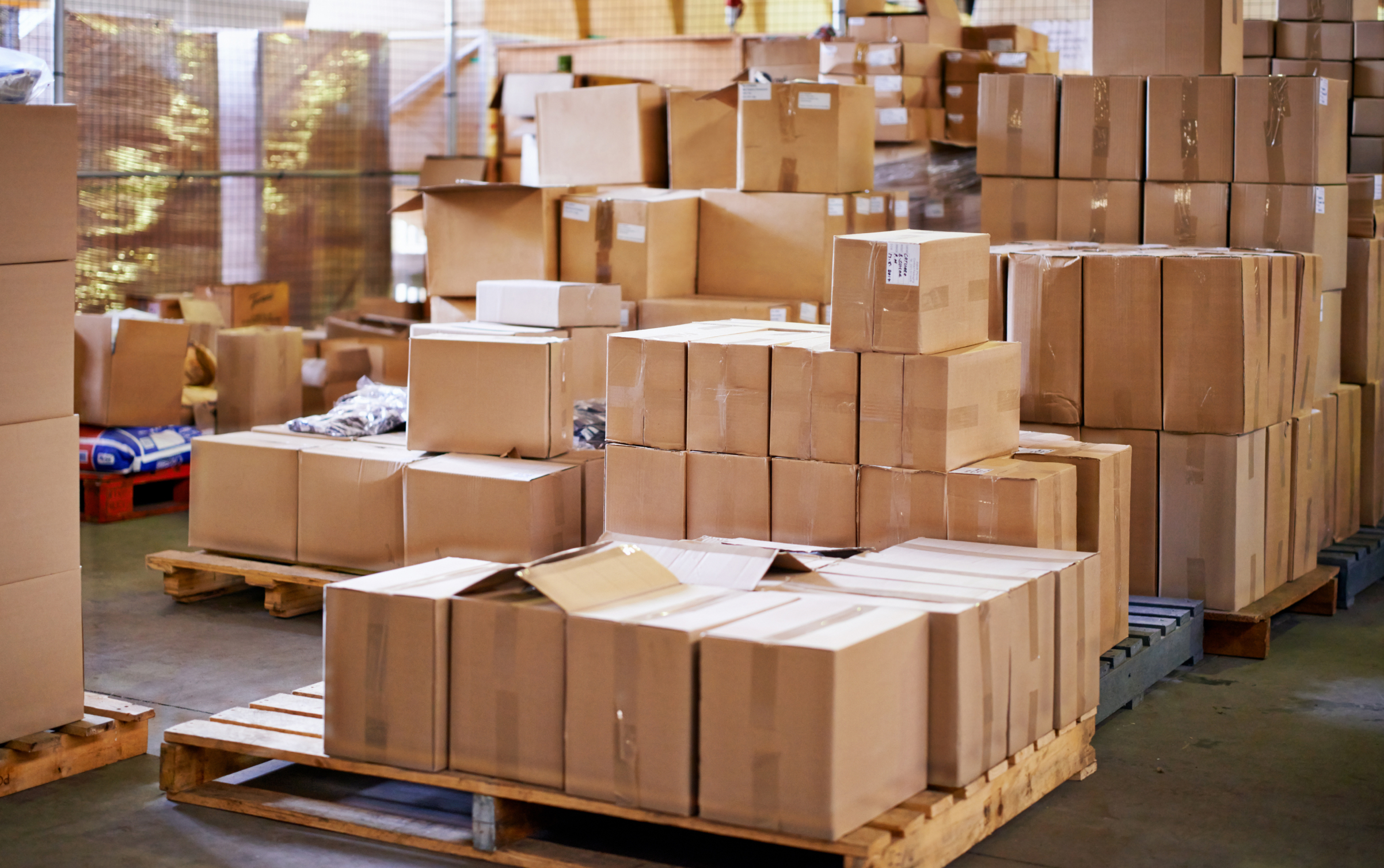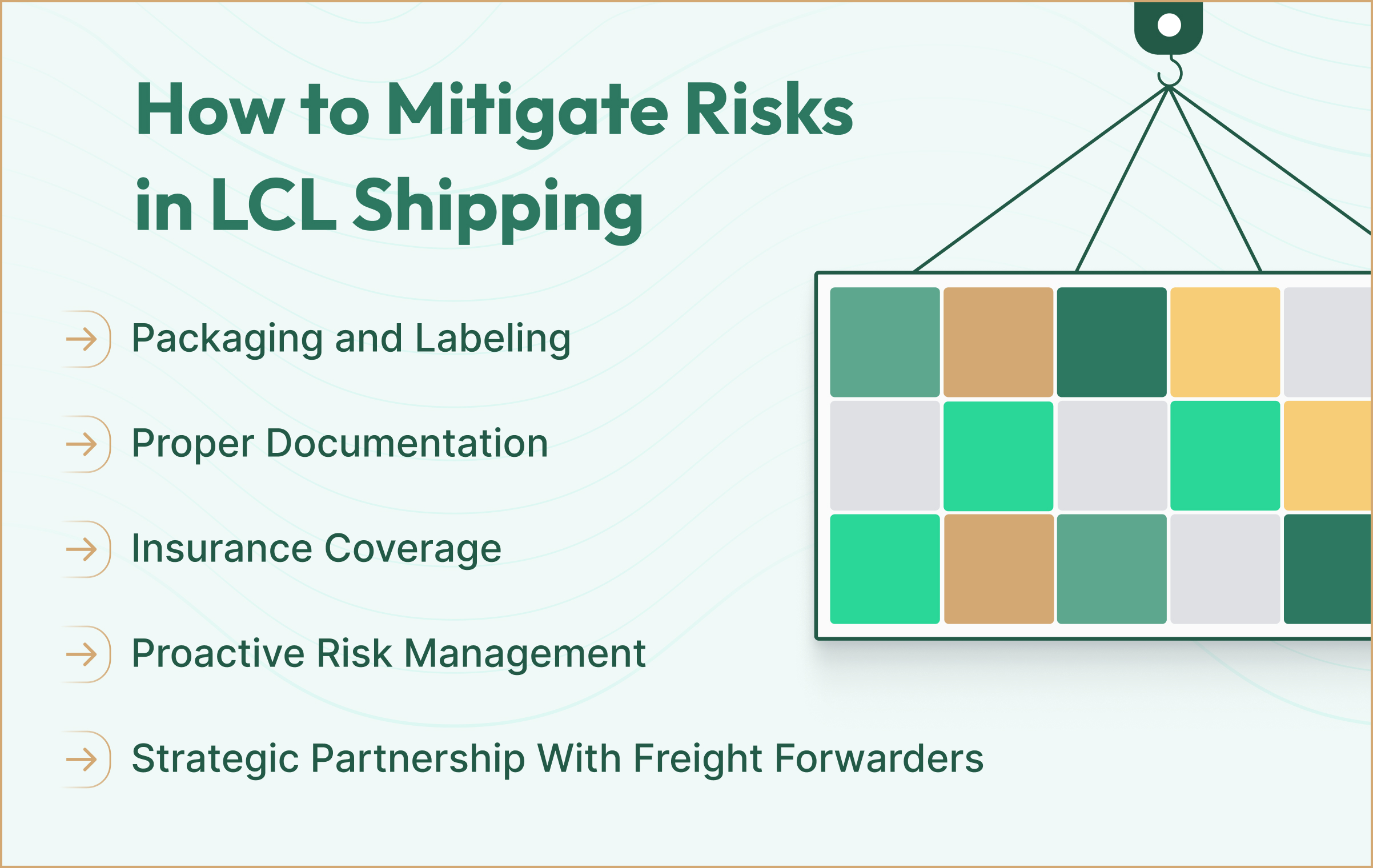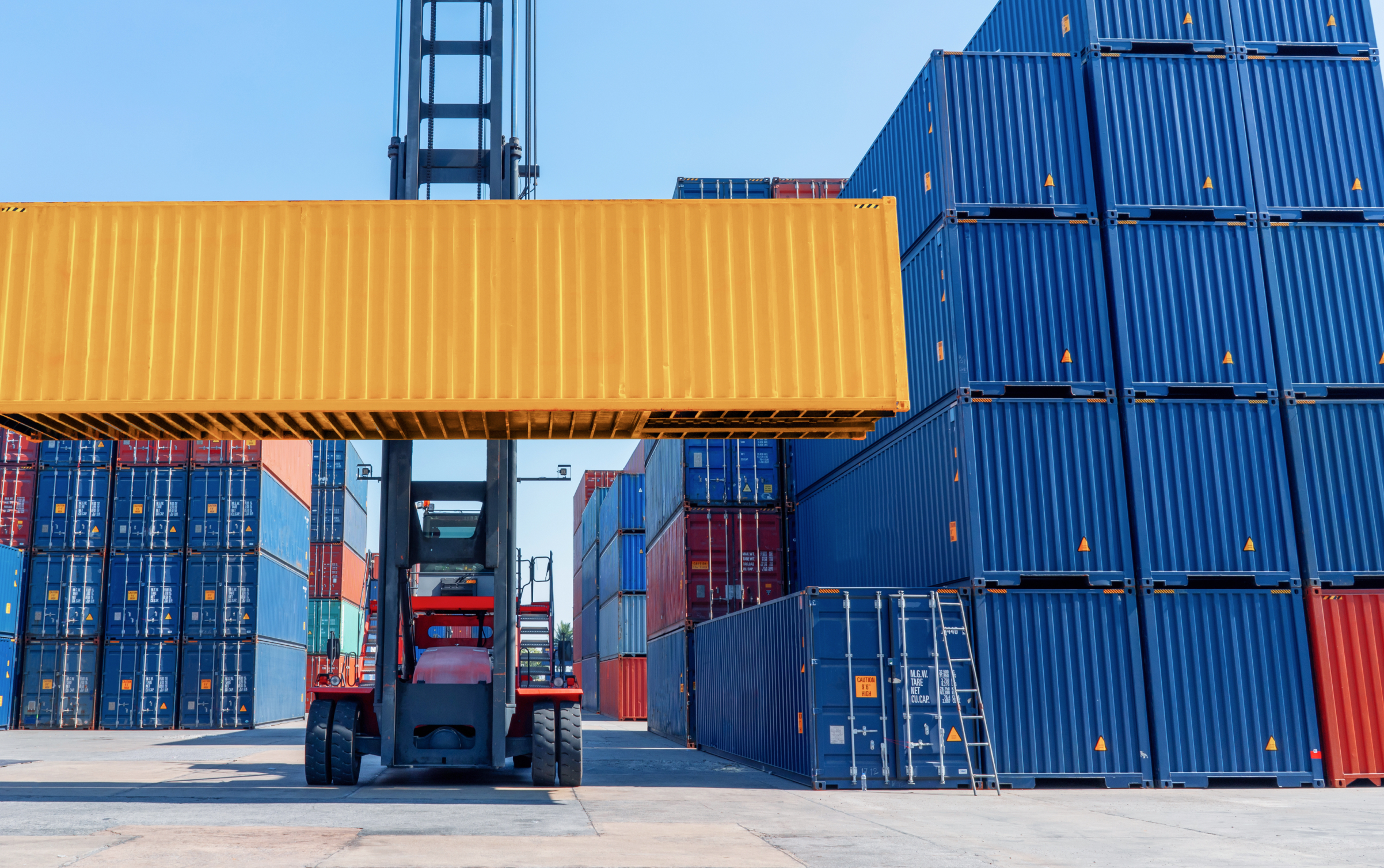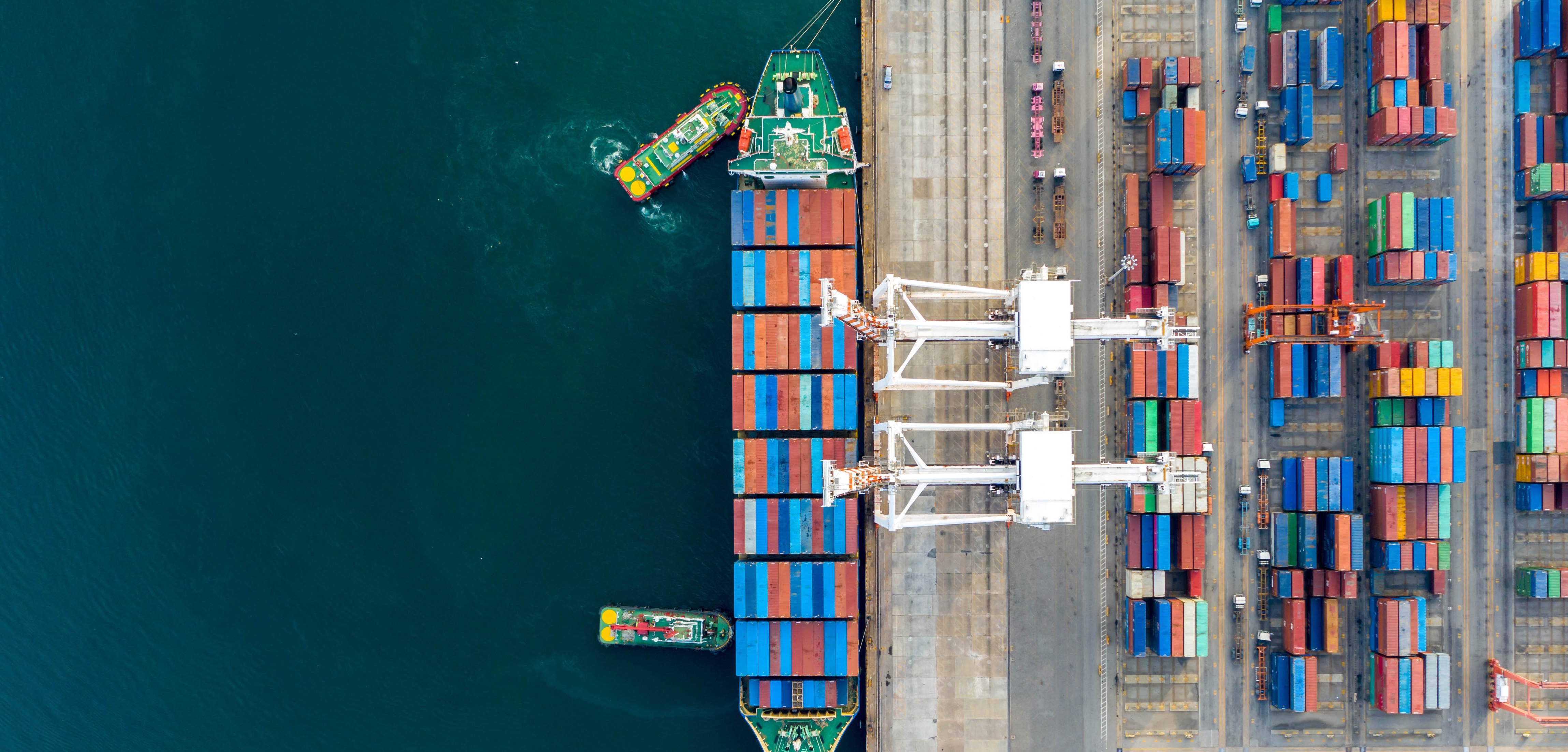Mitigating Risks In LCL Shipping: A Comprehensive Guide

Although LCL shipping has been around for a long time, it is being rediscovered worldwide because of its flexibility and cost-effective approach.
However, despite the benefits of shipping smaller shipments across the globe while paying for only the container space occupied, LCL logistics still poses some risks for shippers and supply chains. For instance, compared to full container load shipping, LCL shipping attracts more scrutiny, is more prone to damage and excessive handling because of consolidation, and has the problem of theft or missing cargo from poor handling. However, these risks can be better managed by implementing certain strategies and practices into the shipping process.
This article is an in-depth guide on how shippers can mitigate risks associated with less-than-container load (LCL) shipping operations.
Why is Mitigating The Risk Associated With LCL Shipping Necessary?
If left unchecked, risks can greatly impact the shipping business and supply chain operations.
For instance, loss of goods or other items will disrupt the entire fulfillment process, leading to delays and potential loss of sales. It is in the shipper’s best interest to mitigate them. For LCL cargo transportation, mitigating the risks associated will ensure the following:
1. Seamless Transportation Process
Jeff Bezos, the founder of Amazon, a logistics and fulfillment giant, once said that stress comes from what you can control but fail to do. The same applies to LCL freight. When your supply chain has done its best to mitigate all the risks, there is peace of mind during the transportation process. The team doesn’t have to worry or be frantic about the entire process.
2. Customer Satisfaction
Customers are at the epicenter of the supply chain, and their satisfaction is the most important determinant of success. When you mitigate the risks associated with the LCL cargo, then the potential for disruption, longer lead times, and mistakes in order fulfillment become non-existent. The result? Customer satisfaction and loyalty.
3. Cost Savings
Shipping costs money, and risks exacerbate it. By mitigating them on time, the shipper does not have to splurge to navigate the consequences of allowing the risk to manifest in the shipping operations.
How to Mitigate Risks in LCL Shipping

Five strategies can be leveraged by shippers to mitigate risks in LCL cargo transportation. However, the success of these mitigations depends on how effectively the supply chain integrates certain strategies and instructions into the shipping process.
1. Packaging and Labeling
By their nature, LCL shipments will have to share container space with similar shipments heading along the same shipping route.
These containers may often be opened during transit or when the vessel stops at ports en route to the final destination, exposing the cargo to all sorts of problems. These include damages, theft, and loss of goods due to mistakes or errors made by different stakeholders throughout the shipping process. Packaging and labeling adequately prevent these problems.
When packaging, consider using sturdy boxes and pallets. Silq's on-ground inspection service, which micro-manages packaging and product quality, can be immensely helpful.
2. Proper Documentation
Containers carrying LCL shipments will most likely be scrutinized because of the many shippers and shipments leveraging it.
In many cases, scrutiny does find an irregularity, which can delay shipments. It could be at the origin container freight station or the destination port. However, with adequate documentation, it doesn’t have to be so. LCL documentation, in this case, will naturally include the bill of lading, certificate of origin, insurance coverage, and commercial invoice, among others. Documentation facilitates the clearance process and ensures the supply chain is not subject to unnecessary delays.
3. Insurance Coverage
Because of the potential risks associated with the LCL shipping process, adequate insurance coverage can mitigate the impact of these risks.
For instance, in the case of a stolen shipment, the insurance company may reimburse the cost of transportation and the product that went missing. However, it does not contain the ripple effects of these risks, such as supply chain downtimes and a dissatisfied customer.
4. Proactive Risk Management
Leverage technology solutions such as real-time tracking, the Internet of Things, and blockchain to monitor the entire shipping process in real-time.
Your supply chain may integrate with the freight forwarders applications, or you may have yours installed in the shipment (although that might be quite expensive). A contingency plan also helps a lot because it provides the supply chain with well-thought-out and documented steps to follow when there is a problem. These two strategies allow for proactive risk management because the supply chain can easily spot potential problems, and it has a set of steps it can take to negate them.
5. Strategic Partnership With Freight Forwarders
Shippers can streamline the entire process by collaborating strategically with the right freight forwarders.
For instance, with Silq, your supply chain doesn’t have to worry about many of these strategies because we take additional measures to ensure everything is in order before the LCL shipments are transported. However, for optimized operations, the supply chain must play a good role. These include effective communication with all relevant stakeholders, adequate planning with logistics partners, including freight forwarders, and then proper scheduling of the LCL freight.
When is Mitigating LCL Shipping Risks Challenging?
Although risk mitigation is a critical aspect of the LCL logistics process, it can sometimes be challenging to mitigate these risks. Some of the challenges shippers and supply chains may face are:
1. Too Many Handlers
The handling process is out of the shipper's control but greatly impacts the shipping process. When there is too much handling, the cargo is left exposed, leading to delays, damages, and theft.
2. Mixed Cargo
When cargo of different natures is shipped together because of a poor consolidation process, it can lead to damage. However, with proper packaging, this can be avoided to some extent.
3. Limited Space Optimization
When leveraging FCL shipping, the shipping container is all yours, and you have the freedom to secure your cargo as you would like. However, with a less-than-container load, there is a limitation. Poor usage of the entire container space threatens the safety of freight within the container.
Dilla Stands Out: Safeguarding Exquisite Luxury with Silq
Dilla Luxury Stationaries, renowned for its handcrafted pens and opulent desk sets, faced a delicate dilemma. Expanding their global reach meant venturing into the world of Less-Than-Container-Load (LCL) shipping.
These shared container shipments, while cost-effective, posed a risk to Dilla's exquisite products. Bumps, jostles, and mixed cargo threatened the very essence of their brand – unparalleled quality and meticulous craftsmanship. Hesitant but determined, Dilla approached Silq, the digital freight forwarding platform that had revolutionized their logistics.
Silq's transparency and meticulous planning reputation resonated with Dilla's commitment to detail. Understanding Dilla's concerns about the LCL shipping solution, Silq's logistics specialists crafted a risk-mitigation strategy. First, they emphasized robust packaging. Dilla invested in high-quality, custom-sized boxes with ample cushioning materials, ensuring their precious pens and desk sets wouldn't budge during transport.
Next, Silq leveraged its network of trusted carriers, selecting those with experience handling delicate LCL and FCL shipment(s). Real-time shipment tracking provided by Silq's platform allowed Dilla to monitor their goods every step of the way, offering peace of mind. Finally, Silq's experts ensured meticulous documentation, avoiding port delays due to missing or incomplete customs paperwork. This streamlined LCL shipment process ensured Dilla's shipments cleared customs swiftly and efficiently.
The outcome was a resounding success. Dilla's luxury items arrived at their international destinations flawlessly, maintaining their pristine condition and exceeding customer expectations. Dilla could now confidently expand their market reach, secure in the knowledge that Silq's expertise safeguarded the very essence of its brand.
Mitigating LCL Shipping Risks With Silq
LCL shipping is a great logistics solution, but it comes with many nuances that may be difficult for the average freight forwarder to manage. Not Silq, though. The reason is that Silq is an all-rounder, a technology platform that streamlines freight forwarding with seamless planning, on-ground inspection and consolidation, documentation, and tracking, ensuring complete control and transparency through the shipping process. From the factory to the consumer's doorstep, Silq is with you in your air freight and ocean freight process. Get started with Silq now.
Ready for Supply Chain Predictability?
Importers using Silq ship smarter, safer, and with total control.







